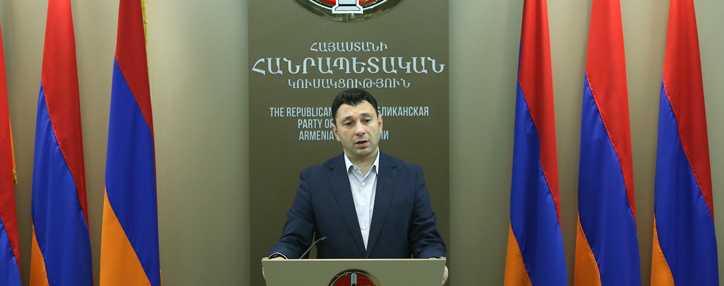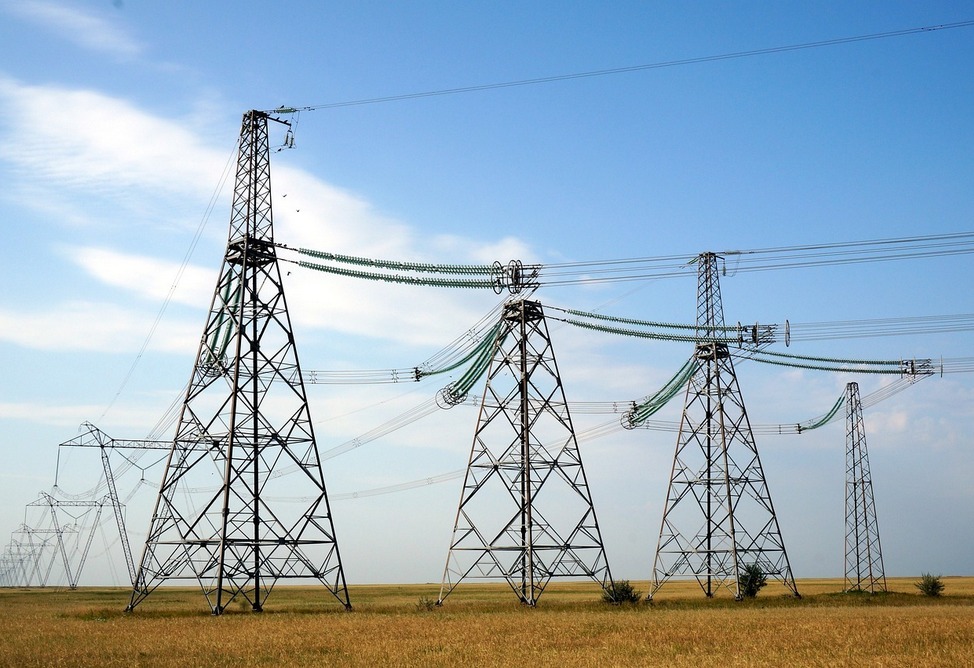PABSEC declaration not only anti-Armenian, but it also contradicts international law
30.11.2017,
11:07
A number of countries, including Turkey and Azerbaijan, have issued a declaration, which contradicts not only Armenia’s interests, but also the international law, Eduard Sharmazanov, Armenian parliament vice-speaker and a member of the executive board of the ruling Republican Party of Armenia, said Wednesday after the board session.

YEREVAN, November 30. /ARKA/. A number of countries, including Turkey and Azerbaijan, have issued a declaration, which contradicts not only Armenia’s interests, but also the international law, Eduard Sharmazanov, Armenian parliament vice-speaker and a member of the executive board of the ruling Republican Party of Armenia, said Wednesday after the board session.
At a session of the Parliamentary Assembly of the Black Sea Economic Cooperation (PABSEC) held in its 25th anniversary in the capital city of Ukraine, the Armenian delegation witnessed an unprecedented phenomenon - only the head of the delegation of the republic’s National Assembly didn’t invited to the discussion held in presence of the heads of all the delegations.
The Armenian delegation walked out in protest.
It became clear later that some provisions on conflicts in the region, such as nonuse of force or threat of force, territorial integrity and national self-determination right, had been altered at the discussion in a clear breach of the international law principles.
“They have taken the territorial integrity principle as a basis and ignored other principles, while all the principles are considered in a package and one principle is not more important than others,” Sharmazanov said. “What the PABSEC adopted a few hours ago contradicts the official stance of European Union and the OPSCE Minsk Group co-chairs.”
In his words, such declarations have no mandatory significance in Karabakh conflict settlement, but they add nothing to peaceful settlement of the conflict. Obvious is that the organization serves particular countries’ interests.
“When we speak about Karabakh conflict, we are always repeating that it can’t be compared to other conflicts – it has its own unique history and legal basis,” Sharmazanov said. “Karabakh seceded from the Soviet Union, just like all the republics, including three Baltic – Estonia, Latvia and Lithuania, which are now members of the European Union.”
On December 10, 1991, a few days after the collapse of the Soviet Union, a referendum took place in Nagorno-Karabakh, and the majority of the population (99.89%) voted for secession from Azerbaijan.
Afterwards, large-scale military operations began. As a result, Azerbaijan lost control over Nagorno-Karabakh and the seven regions adjacent to it.
Some 30,000 people were killed in this war and about one million people fled their homes.
On May 12, 1994, the Bishkek cease-fire agreement put an end to the military operations.
Тalks brokered by OSCE Minsk Group are being held over peaceful settlement of the conflict. The group is co-chaired by USA, Russia and France. -0-----
At a session of the Parliamentary Assembly of the Black Sea Economic Cooperation (PABSEC) held in its 25th anniversary in the capital city of Ukraine, the Armenian delegation witnessed an unprecedented phenomenon - only the head of the delegation of the republic’s National Assembly didn’t invited to the discussion held in presence of the heads of all the delegations.
The Armenian delegation walked out in protest.
It became clear later that some provisions on conflicts in the region, such as nonuse of force or threat of force, territorial integrity and national self-determination right, had been altered at the discussion in a clear breach of the international law principles.
“They have taken the territorial integrity principle as a basis and ignored other principles, while all the principles are considered in a package and one principle is not more important than others,” Sharmazanov said. “What the PABSEC adopted a few hours ago contradicts the official stance of European Union and the OPSCE Minsk Group co-chairs.”
In his words, such declarations have no mandatory significance in Karabakh conflict settlement, but they add nothing to peaceful settlement of the conflict. Obvious is that the organization serves particular countries’ interests.
“When we speak about Karabakh conflict, we are always repeating that it can’t be compared to other conflicts – it has its own unique history and legal basis,” Sharmazanov said. “Karabakh seceded from the Soviet Union, just like all the republics, including three Baltic – Estonia, Latvia and Lithuania, which are now members of the European Union.”
On December 10, 1991, a few days after the collapse of the Soviet Union, a referendum took place in Nagorno-Karabakh, and the majority of the population (99.89%) voted for secession from Azerbaijan.
Afterwards, large-scale military operations began. As a result, Azerbaijan lost control over Nagorno-Karabakh and the seven regions adjacent to it.
Some 30,000 people were killed in this war and about one million people fled their homes.
On May 12, 1994, the Bishkek cease-fire agreement put an end to the military operations.
Тalks brokered by OSCE Minsk Group are being held over peaceful settlement of the conflict. The group is co-chaired by USA, Russia and France. -0-----



